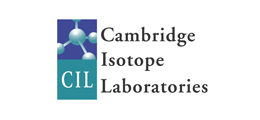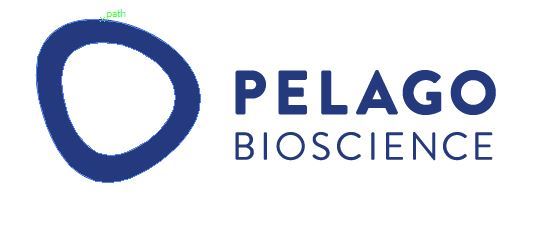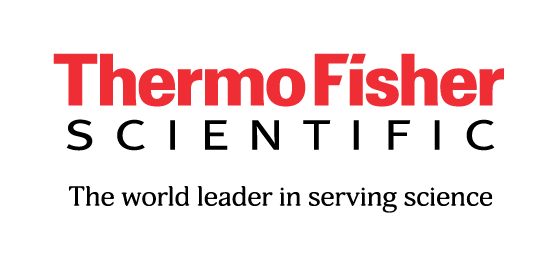|
Human Proteomics at Extreme Conditions |
Space flight is one of the most extreme conditions encountered by humans. The factors such as radiation, microgravity, hypodynamia, and isolation disturb homeostatic systems and affect the majority of physiological systems. Many experimental tools and methods have been developed to study the space-induced physiological changes. A better understanding of individual differences on the molecular level may allow us to develop personalized countermeasures to minimize risks to astronauts. Proteomic studies of the space flight effects are mostly limited to various models, such as cultured cells, plants, microorganisms, and animals of various taxonomic groups. The Human proteomics at Extreme Conditions Initiative started in 2013 as a international collaborative initiative aiming to accumulate proteomic data on the effects of space flight factors on the human body, including both real space missions and ground-based model experiments. Current line of work:To summarize the available proteomic data on the effects of space flight factors on the human body, including both real space missions and ground-based model experiments.
Papers:Urine proteome changes associated with autonomic regulation of heart rate in cosmonauts. Pastushkova et al. BMC Systems Biology, 2018, in print.. The molecular mechanisms driving physiological changes after long duration space flights revealed by quantitative analysis of human blood proteins. Daria N. Kashirina, Andrew J. Percy, Liudmila Kh. Pastushkova, Christoph H. Borchers, Kirill S. Kireev, Vladimir A. Ivanisenko, Alexey S. Kononikhin, Eugene N. Nikolaev, Irina M. Larina, BMC Medical Genomics, 2018 in print. 200+ Protein Concentrations in Healthy Human Blood Plasma: Targeted Quantitative SRM SIS Screening of Chromosomes 18, 13, Y and the Mitochondrial Chromosome Encoded Proteome. Kopylov AT, Ponomarenko EA, Ilgisonis EV, Pyatnitskiy MA, Lisitsa AV, Poverennaya EV, Kiseleva OI, Farafonova TE, Tikhonova OV, Zavialova MG, Novikova S, Moshkovskii SA, Radko SP, Morukov BV, Grigoriev AI, Paik YK, Salekdeh GH, Urbani A, Zgoda VG, Archakov AI. J Proteome Res. 2018 Nov 27. doi: 10.1021/acs.jproteome.8b00391. [Epub ahead of print] PMID:30480452 THE EFFECT OF LONG-TERM SPACE FLIGHTS ON HUMAN URINE PROTEINS FUNCTIONALLY RELATED TO ENDOTHELIUM Pastushkova L.K., Kashirina D.N., Kononikhin A.S., Brzhozovsky A.G., Larina I.M., Ivanisenko V.A., Tiys E.S., Nikolaev E.N., Novosyolova A.M., Custaud M.-A. Human Physiology. 2018; 44(1): 60-67. DOI: 10.1134/S0362119718010139 Oxidation-induced modifications of the catalytic subunits of plasma fibrin-stabilizing factor at the different stages of its activation identified by mass spectrometry. Vasilyeva A, Yurina L, Indeykina M, Bychkova A, Bugrova A, Biryukova M, Kononikhin A, Nikolaev E, Rosenfeld M. Biochim Biophys Acta Proteins Proteom. 2018 Aug;1866(8):875-884. doi: 10.1016/j.bbapap.2018.05.001. Epub 2018 May 5. PMID:29738861 The molecular mechanisms driving physiological changes after long duration space flights revealed by quantitative analysis of human blood proteins. Daria N. Kashirina, Andrew J. Percy, Liudmila Kh. Pastushkova, Christoph H. Borchers, Kirill S. Kireev, Vladimir A. Ivanisenko, Alexey S. Kononikhin, Eugene N. Nikolaev, Irina M. Larina, BMC Medical Genomics, 2018 in print. Label-free study of cosmonaut's urinary proteome changes after long-duration spaceflights. Brzhozovskiy A, Kononikhin A, Indeykina M, Pastushkova L, Popov IA, Nikolaev EN, Larina IM. Eur J Mass Spectrom (Chichester). 2017 Aug;23(4):225-229. doi: 10.1177/1469066717717610. Epub 2017 Jul 5 Protein expression changes caused by spaceflight as measured for 18 Russian cosmonauts. M Larina I, Percy AJ, Yang J, Borchers CH, M Nosovsky A, I Grigoriev A, N Nikolaev E. Sci Rep. 2017 Aug 15;7(1):8142. doi: 10.1038/s41598-017-08432-w. PMID:28811532 Label-free study of cosmonaut's urinary proteome changes after long-duration spaceflights. Brzhozovskiy A, Kononikhin A, Indeykina M, Pastushkova L, Popov IA, Nikolaev EN, Larina IM. Eur J Mass Spectrom (Chichester). 2017 Aug;23(4):225-229. doi: 10.1177/1469066717717610. Epub 2017 Jul 5 Spaceflight induced changes in the human proteome. Kononikhin AS, Starodubtseva NL, Pastushkova LK, Kashirina DN, Fedorchenko KY, Brhozovsky AG, Popov IA, Larina IM, Nikolaev EN. Expert Rev Proteomics. 2017 Jan;14(1):15-29. doi:10.1080/14789450.2017.1258307. Effect of Different Levels of Salt Consumption on Urine Protein Composition during 105-Day Isolation Analyzed with the Use of opoSOM Software. Pastushkova LH, Kashirina DN, Brzhozovsky AG, Ivanisenko VA, Tiys ES, Kononikhin AS, Starodubtseva NL, Nikolaev EN, Binder H, Larina IM. Fiziol Cheloveka. 2017 Jan;43(1):89-96 Longitudinal Urinary Protein Variability in Participants of the Space Flight Simulation Program. Khristenko NA, Larina IM, Domon B. J Proteome Res. 2016 Jan 4;15(1):114-24. doi: 10.1021/acs.jproteome.5b00594. Epub 2015 Dec 3. Permanent proteins in the urine of healthy humans during the Mars-500 experiment. Larina IM, Pastushkova LKh, Tiys ES, Kireev KS, Kononikhin AS, Starodubtseva NL, Popov IA, Custaud MA, Dobrokhotov IV, Nikolaev EN, Kolchanov NA, Ivanisenko VA. J Bioinform Comput Biol. 2015 Feb;13(1):1540001. doi: 10.1142/S0219720015400016. Epub 2015 Jan 8. PMID:25572715 Time-course human urine proteomics in space-flight simulation experiments. Binder H, Wirth H, Arakelyan A, Lembcke K, Tiys ES, Ivanisenko VA, Kolchanov NA, Kononikhin A, Popov I, Nikolaev EN, Pastushkova L, Larina IM. BMC Genomics. 2014;15 Suppl 12:S2. doi: 10.1186/1471-2164-15-S12-S2. Epub 2014 Dec 19. PMID:25563515 Upcoming Events:
Past Events:
Leadership:Eugene Nikolaev, Chair Irina Larina, Co-chair For more information or participation opportunities please contact office(at)hupo.org. |


.png)
















